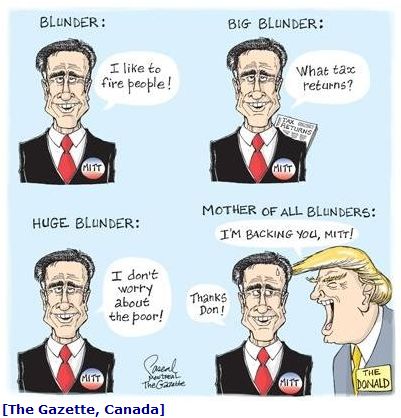
Are young people in America less stridently nationalistic than their predecessors? Columnist Fyodor Lukyanov of Russia’s Gazeta, citing recent Pew Research Center polling data, asserts in this detailed evaluation of U.S. public attitudes, that there is a declining tendency on the part of the U.S. population to believe in American exceptionalism, and concludes that U.S. foreign policy will be increasingly focused inward and toward the “near abroad” of Mexico and Latin America.
For Gazeta, Fyodor Lukyanov writes in part:
The age breakdown of answers to the question of American exceptionalism – measuring the assertion that the United States is the greatest country in the world – is interesting. The largest number of those who share this belief (64 percent) is among the oldest, the “Silent Generation,” (which reaches a height of 72 percent in the 76-83 age range). Baby-Boomers are split precisely in half, and among Generation X, only 48 percent are proponents of American exceptionalism, with the youngest – the Millennial Children, being the most skeptical – 32 percent. A similar pattern can be seen when it comes to the question of patriotism: Seventy percent of Millennium Children answer positively to the question of whether they consider themselves “very patriotic.” The remaining numbers range from 86 percent to 91 percent. Seventy percent is without a doubt high, but that level has fallen consistently since 2003, when 80 percent of young people felt the most patriotic.
In assessing the source of national success, the nation is united. The vast majority of Americans of all ages consider freedom to be the central source of this success, followed by hard work, natural resources, military strength, democratic governance, free markets, and religious and racial/ethnic diversity.
What is telling is the fact that the older groups tend to place more significance on military power than the younger, and the younger groups believe democracy and religion to be relatively less important.
Of course, these statistics don’t allow us to predict U.S. foreign policy for the next ten to twenty years. Especially since foreign policy is formulated by the ruling class, which even in a democracy isn’t guided by the will of the people. And yet, a trend is detectable.
Young people, who are now entering active public life and building careers, are distinguished by a greater openness, tolerance and a positive outlook. But at the same time, they have a declining tendency toward patriotic bravado and perceive the theme of American greatness more calmly and with far less pathos. Furthermore, a more positive attitude toward immigration is evidence of a sober evaluation of necessity.
READ ON IN ENGLISH OR RUSSIAN AT WORLDMEETS.US, your most trusted translator and aggregator of foreign news and views about our nation.
















